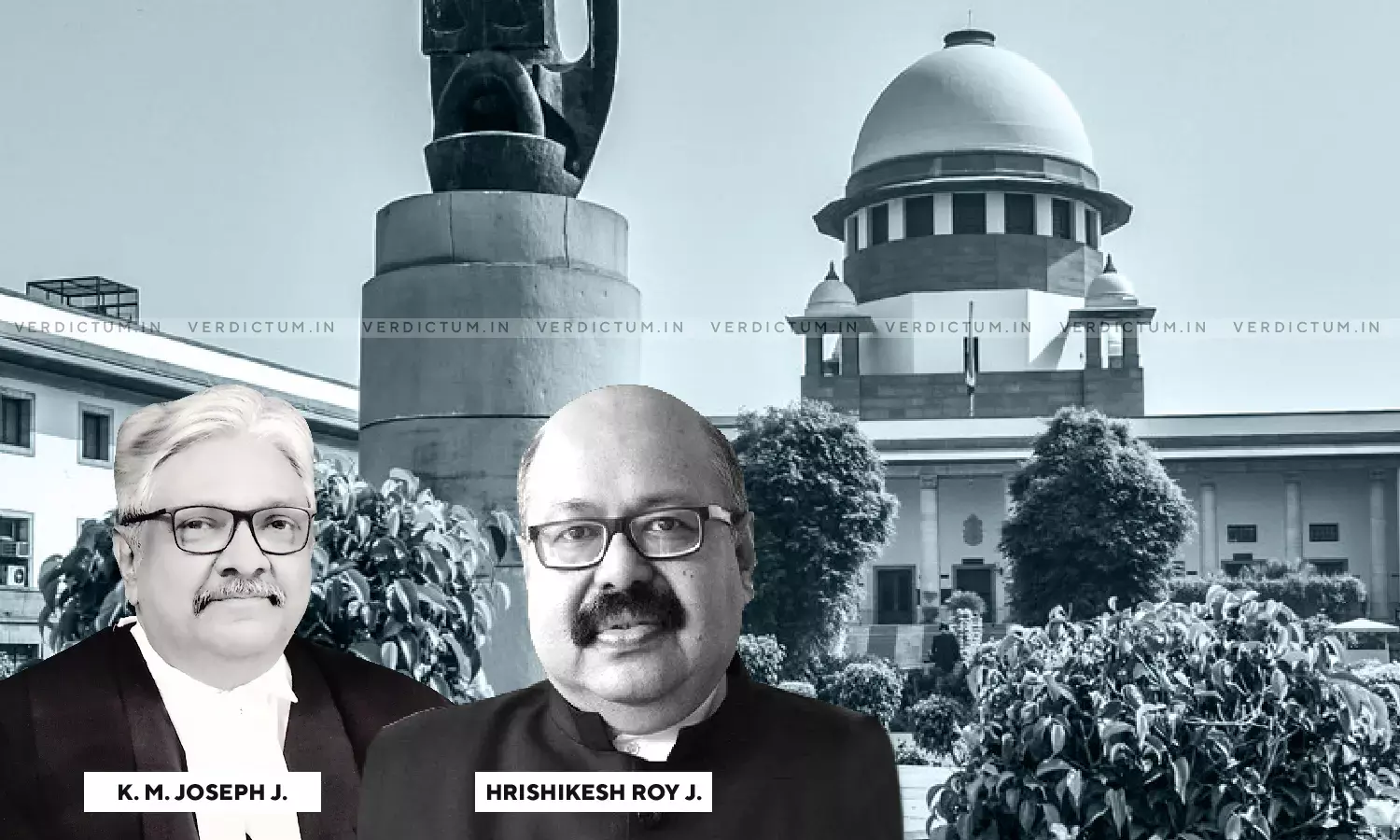Regularity, Predictability, Certainty, And Fairness Necessary Concomitants Of Government's Action - SC Reiterates

The Supreme Court in a judgment dated May 5 dismissed an appeal against the impugned judgment of the Bihar High Court.
The Apex Court bench comprising Justice K. M. Joseph and Justice Hrishikesh Roy upheld the decision of the High Court taken regarding the unjust treatment of the +2 lecturers who were appointed as members of the Subordinate Educational Service.
The Court held that regularity, predictability, certainty, and fairness are necessary concomitants of Government's action.
"Taking a cue from above, where the substantive legitimate expectation is not ultra vires the power of the authority and the court is in a position to protect, the State cannot be allowed to change course and believe the legitimate expectation of the respondents. As is well known, Regularity, Predictability, Certainty and Fairness are necessary concomitants of Government's action and the Bihar government in our opinion, failed to keep to their commitment by the impugned decision, which we find was rightly interdicted by the High Court," the Court observed.
Senior Advocate Mr. Vijay Navare appeared for +2 Lecturers while Senior Advocate Mr. Vijay Hansaria appeared for BES before the Apex Court.
The appeal arose when the Patna High Court granted relief to the writ petitioners and declared that the +2 lecturers, both in the Government and nationalized secondary schools, have always been part of the Bihar Subordinate Education Service, and thereby, they are entitled to be merged with the Bihar Education Service Class II pursuant to the Government decision. The High Court quashed and set aside the impugned notification which provided for the encadrement of the +2 lecturers with the teachers in the nationalized secondary schools, which was found to be in contravention of Article 790 of the Bihar Education Code.
The Government of Bihar, in order to address the problem of stagnation in the Bihar Civil Services had appointed a committee to consider opportunities for promotion. The committee recommendation regarding the Bihar Education Department icluded the integration of 59 posts in the miscellaneous cadre into Bihar Education Service Cadre. In line with these recommendations the Government issued regulation upgrading 2465 sanctioned posts of teachers of subordinate education service male and female cadre, into Bihar Education Service Class II in 1977.
The Association representing the teachers of the BSES filed a writ petition in the Patna High Court claiming merger of their cadre with BES. The court allowed the writ petition. Since the consequential benefits were still not forthcoming another writ petition was filed which was allowed. A civil appeal was made in the Supreme Court which was dismissed. In compliance a resolution was issued whereby the cadre of BSES was merged with the BES, Class II. At this stage members of the BES apprehending impact on inter-se seniority filed a writ petition challenging the merger. The Single Judge Bench allowed the writ petition and in compliance of the order the State Government immediately quashed the merger.
The decision of the Single judge was upheld by the Division Bench. The resultant SLP and appeal was allowed by the Supreme Court in 2012. The initial decision of merging the BSES teachers with BES was restored and the State was directed to act accordingly. The State Government was dilly-dallying on the aspect of restoration of the earlier position resulting in contempt proceeding being intiated against them.
The main cause for the litigation was that while implementing the merger decision an exception was carved out by the government, whereunder, the benefit of merger into BES was denied to the +2 lecturers in government school. The premise for the deviation was that the +2 lecturers were never treated or recognized as part of the BSES cadre. The +2 lecturers moved the High Court during the pendency of which the State Government framed the Bihar Government Higher Secondary Schools (Service Conditions) (Amendment) Rules, 2009, through which the lecturer was defined to mean the +2 lecturers and were encadred with the nationalized secondary school teachers. As a result further challenge was generated in the High Court. The issue raised was that the +2 lecturers have always been treated as above the secondary school teachers in nationalized schools and therefore encadrement of the two unequals is unjust. The court allowed the appeal which led to the petition before the Supreme Court.
The Supreme Court found that, "the +2 lecturers' posts were created in the BSES Cadre. The conduct of the Government in providing pay scale parity with the BSES teachers in the secondary schools, reinforces such conclusion. These relevant and attending circumstances eclipse the implication of the ex-cadre reference in the appointment letters. What is also discernible is that the encadrement through notification dated 23.06.2009 has frustrated the legitimate expectations of the respondents and was undertaken with the unfair aim to block the respondents' promotion to key positions, particularly in the administrative wing of the Education department. Such unfairness in State's action cannot be countenanced by Court. Resultantly we record our approval with the reasoning and conclusions in the impugned judgment in favour of the +2 lecturers to the effect that they are indeed the members of the Subordinate Educational Service and the State Government must treat the +2 lecturers appointed as members of the Subordinate Educational Service and all service benefits as the members of the Subordinate Educational Service should therefore be extended to them."
Click Here to Read/Download the Judgment

